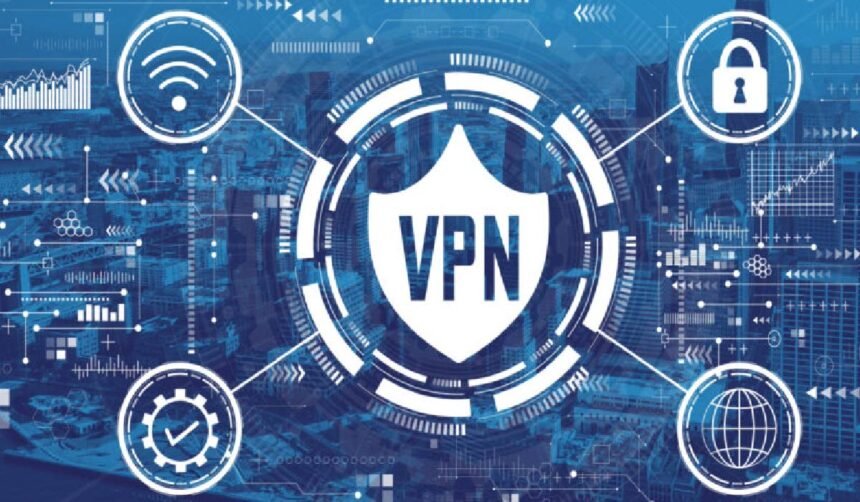Nowadays, nearly all of our online activities leave behind a digital trail. From banking and shopping to streaming and social media, your personal information is constantly at risk.
That’s why many people turn to VPNs, to protect their privacy and access content without restrictions. Paying for a VPN with a credit card is convenient and familiar for most users, but it’s not risk-free. Understanding the do’s and don’ts of using credit cards for VPN subscriptions can help you stay secure while enjoying a seamless online experience.
Purchasing a VPN with a credit card is a prevalent practice, offering convenience and widespread acceptance. However, it’s essential to navigate this process with caution to protect your financial and personal information.
Do: Ensure the VPN Provider Uses HTTPS and PCI DSS Compliance
Before entering your credit card details, verify that the VPN provider’s website employs HTTPS encryption. This ensures secure transmission of your payment information. Additionally, check if the provider complies with the Payment Card Industry Data Security Standard (PCI DSS), which sets requirements for organizations handling credit card information.
Fraud Alert: Credit Card Fraud Statistics
In 2025, credit card fraud continues to be a concern, but taking the right precautions makes online payments safe. According to the Federal Trade Commission (FTC), there were over 1.4 million reports of credit card fraud in the United States, resulting in losses exceeding $1.8 billion.
By choosing a reliable no-log VPN and secure payment systems, users can confidently buy VPN with credit card, enjoying both convenience and peace of mind.
Don’t: Use Public Wi-Fi for Transactions
Avoid entering your credit card information over public Wi-Fi networks, as they are often unsecured and can be exploited by cybercriminals. Even with a VPN, public networks can be vulnerable to attacks like man-in-the-middle, where attackers intercept and alter communications between you and the intended recipient.
Do: Enable Two-Factor Authentication (2FA)
Enhance the security of your credit card transactions by enabling two-factor authentication on your account. This adds an extra layer of protection by requiring a second form of verification, such as a code sent to your mobile device, in addition to your password.
VPN Usage Trends
VPN adoption continues to rise globally. According to a 2025 survey by Security.org, 64% of users opt for paid VPN subscriptions, reflecting increased awareness around privacy and security online. The convenience of paying via credit card complements this trend, allowing users to subscribe quickly without worrying about complicated checkout processes.
For users looking for a reliable option, PureVPN offers seamless credit card payments, making it easy to get started in minutes. With a wide range of servers, strong encryption, and user-friendly apps.
Don’t: Store Credit Card Information on Multiple Platforms
Refrain from saving your credit card details across multiple websites or platforms. Each storage point increases the risk of unauthorized access. If a breach occurs on any of these platforms, your financial information could be compromised.
Do: Monitor Your Credit Card Statements Regularly
Regularly review your credit card statements for any unauthorized transactions. Early detection can help mitigate potential damage and allow you to report fraudulent activities promptly.
Digital Payment Fraud Statistics
In 2023, global losses due to digital payment fraud amounted to $32 billion, highlighting the need for enhanced security measures. Credit card fraud accounted for 50% of the total payment fraud losses in 2023, emphasizing the importance of vigilance when making online transactions.
Don’t: Ignore Refund Policies
Before purchasing a VPN, familiarize yourself with the provider’s refund policy. Some providers may have strict refund terms, and understanding these can help you avoid complications if you decide to cancel the service.
Do: Use Virtual Credit Cards for Added Security
Consider using virtual credit cards for online transactions. These are temporary numbers linked to your actual credit card account, offering an additional layer of security by minimizing exposure of your real card details.
Credit Card Fraud Prevention
According to a 2024 report by the Consumer Financial Protection Bureau (CFPB), implementing measures such as virtual credit cards and monitoring tools can significantly reduce the risk of fraud. Users who adopted these practices reported a 30% decrease in unauthorized transactions.
Don’t: Overlook VPN Provider Reputation
Not all VPNs are trustworthy. Some may engage in practices that compromise user privacy or security. Research and choose providers with a solid reputation and positive user reviews.
Do: Keep Your Device’s Security Software Updated
Ensure that your device’s operating system and security software are up to date. Regular updates patch vulnerabilities that could be exploited by cybercriminals to gain unauthorized access to your information.
VPN Scams and Fraudulent Activities
In 2024, there was a 40% increase in VPN-related scams compared to the previous year. Fraudsters often exploit the growing demand for privacy by offering fake VPN services that steal personal data. Being aware of such scams can help you make informed decisions when selecting a VPN provider.
Don’t: Share Your Credit Card Information Unnecessarily
Be cautious about sharing your credit card details. Only provide them to trusted and verified VPN providers, and avoid sharing them via email or unsecured communication channels.
By following these guidelines, you can mitigate the risks associated with purchasing a VPN using a credit card and ensure a safer online experience. Always prioritize security and stay informed about best practices to protect your financial and personal information.









